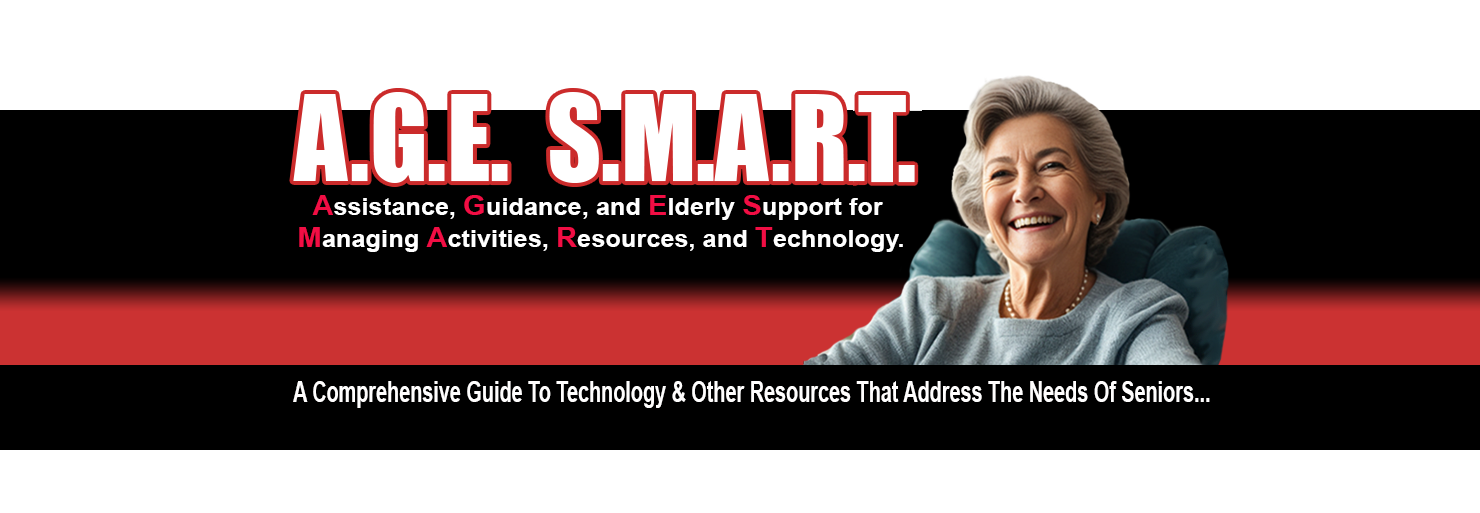
Adaptive Tools
Ultimately, the goal of the website is to empower seniors and their caregivers with knowledge and resources to make informed decisions about their health and well-being. It is important to note that this website should be used as a guide or starting point for further research and discussion.
For many seniors, maintaining independence is a top priority as they age., as mobility and cognitive abilities start to decline, it can become challenging live independently. This is where adaptive tools can make a significant difference in the lives of seniors.
 Adaptive tools are devices or equipment designed to help individuals with physical or cognitive limitations perform daily tasks and activities. tools can range from simple gadgets like reachers and grab bars to more advanced technology like smart home devices and medication management systems.
Adaptive tools are devices or equipment designed to help individuals with physical or cognitive limitations perform daily tasks and activities. tools can range from simple gadgets like reachers and grab bars to more advanced technology like smart home devices and medication management systems.
One of the benefits of adaptive tools for seniors is that they can help to increase safety and reduce the risk of in the home. For example, grab bars in the bathroom can prevent slips and falls, while adaptive utensils can make eating easier for those with arthritis or tremors. Additionally, assistive technology like fall detection sensors can provide peace of mind for both seniors and their loved ones.
Another advantage of adaptive tools is that they can help seniors maintain their independence and autonomy. By utilizing devices that assist with daily tasks, seniors can continue to live on their own terms and retain a sense of control over their lives. This can lead to improved mental well-being and a higher quality of life overall.
Moreover, adaptive tools can also promote social engagement and connectivity for seniors. For example, devices like tablets or smartphones can help seniors stay in touch with family and friends, access online resources, and even participate in virtual social activities. This can help combat feelings of isolation and loneliness, which are common among older adults.
In conclusion, the proper adaptive tools can make a significant difference in the lives of seniors by promoting safety, independence, and social connection. These devices can help seniors age in place comfortably and on their own terms, ultimately enhancing their overall well-being and quality of life. It is essential for seniors and their caregivers to explore the various adaptive tools available and consider incorporating them into their daily routines to support independent living.
Here are 20 areas of daily life where seniors may benefit from some type of adaptive equipment:
- Bathing: Grab bars, shower chairs, and bath lifts can make bathing a safer and more comfortable experience for seniors.
- Cleaning: Long-handled cleaning tools, lightweight vacuums, and adaptive mops can make household chores more manageable for seniors.
- Cooking: Kitchen tools like jar openers, easy-grip cutting boards, and adaptive knives can help seniors prepare meals independently.
- Dressing: Button hooks, zipper pulls, and dressing sticks can assist seniors in putting on and taking off clothing.
- Driving: Adaptive driving aids like steering wheel grips, pedal extenders, and mirrors can help seniors continue to drive safely for longer.
- Eating: Adaptive utensils with larger grips or built-up handles can make eating easier for seniors with arthritis or limited dexterity.
- Entertainment: Adaptive book stands, large-button remote controls, and easy-to-use technology devices can make entertainment more accessible for seniors
- Exercise: Exercise bands, weights with easy-to-grip handles, and adaptive exercise equipment can help seniors stay active and maintain their strength and flexibility.
- Gardening: Adaptive gardening tools with ergonomic grips, raised garden beds, and garden stools can make gardening a more comfortable and enjoyable activity for seniors.
- Hearing: Amplified telephones, TV listening devices, and hearing aids can improve communication for seniors with hearing loss.
- Laundry: Reacher grabbers can assist seniors in reaching items in the laundry room, while front-loading washers and dryers with easy-to-operate controls can make laundry easier.
- Medication management: Pill organizers with large compartments and pill reminders can help seniors keep track of their medications.
- Memory: Reminders apps, medication reminders, and memory aids like whiteboards or sticky notes can help seniors with memory loss stay organized.
- Mobility: Walkers, canes, and motorized scooters can help seniors their surroundings safely and independently.
- Safety: Personal emergency response systems, automatic fall detection devices, and home security systems can provide peace of mind for seniors and their loved ones.
- Sleep: Adjustable beds, mattress toppers, and ergonomic pillows can help seniors get a good night's sleep and reduce aches and pains.
- Socialization: Hearing loop systems, video phones, and social media can help seniors stay connected with loved ones and friends.
- Toileting: Raised toilet seats and grab bars near the toilet can help seniors maintain their independence in the bathroom.
- Travel: Lightweight luggage, travel wheelchairs, and travel accessories like pill organizers and travel alarms can make traveling easier and more comfortable for seniors.
- Vision: Magnifying glasses, large-print books, and talking watches can help seniors with low vision maintain their independence.
In conclusion, adaptive equipment can greatly enhance the quality of life for seniors by helping them overcome physical limitations and maintain their independence in various aspects of daily living. By identifying the areas where adaptive equipment may be beneficial and exploring the available options, seniors can continue to live comfortably and safely in their own homes as they age.
As an Amazon Associate, I earn from qualifying purchases. Please note that some of the links to products presented might be affiliate links.